The Centre for International Legal Cooperation (CILC) marked its 40th anniversary with a celebration that brought together longstanding partners, beneficiaries, legal experts, and visionaries in international justice reform. The event was a tribute to CILC’s enduring mission: building legal institutions and fostering the rule of law.
The celebration began with a speech from our director, Mrs. Anne-Marie Bruist, who offered a reflective journey through CILC’s four decades of legal cooperation. She emphasized the organisation’s founding values – international solidarity, legal expertise, and long-term partnerships, and their continued relevance in today’s global landscape. She traced CILC’s beginnings in the 1980s, born from a Dutch commitment to international cooperation, and highlighted how its work continues to matter today—at a time when democracy, judicial independence, and human rights are under increasing pressure.
Following this, Mr. Gerard Tangenberg, Chair of the Supervisory Board, delivered a warm and inspiring speech on behalf of the Board. We are deeply grateful to him and to the entire Supervisory Board for their ongoing support and vital role in shaping and safeguarding CILC’s long-term vision.
Renowned journalist and the moderator of the event, Mr. Wouter Kurpershoek reflected on spending three decades covering conflicts around the world, and shared his journey from documenting crises to now supporting peacebuilding and legal development alongside CILC. His personal story exemplified the nature of CILC’s work, moving from post-conflict observation to institution-building and legal cooperation.
A particularly moving moment came when Mr. Jan van Olden, one of the founding members of CILC, took the floor. Present at the very first meeting on 1 May 1985, Jan recalled the early optimism of the organisation and its mission to share Dutch legal expertise with countries in transition. Jan also voiced a note of reflection on the future, asking how the Netherlands will continue to invest in international expertise and solidarity amid growing domestic pressures.
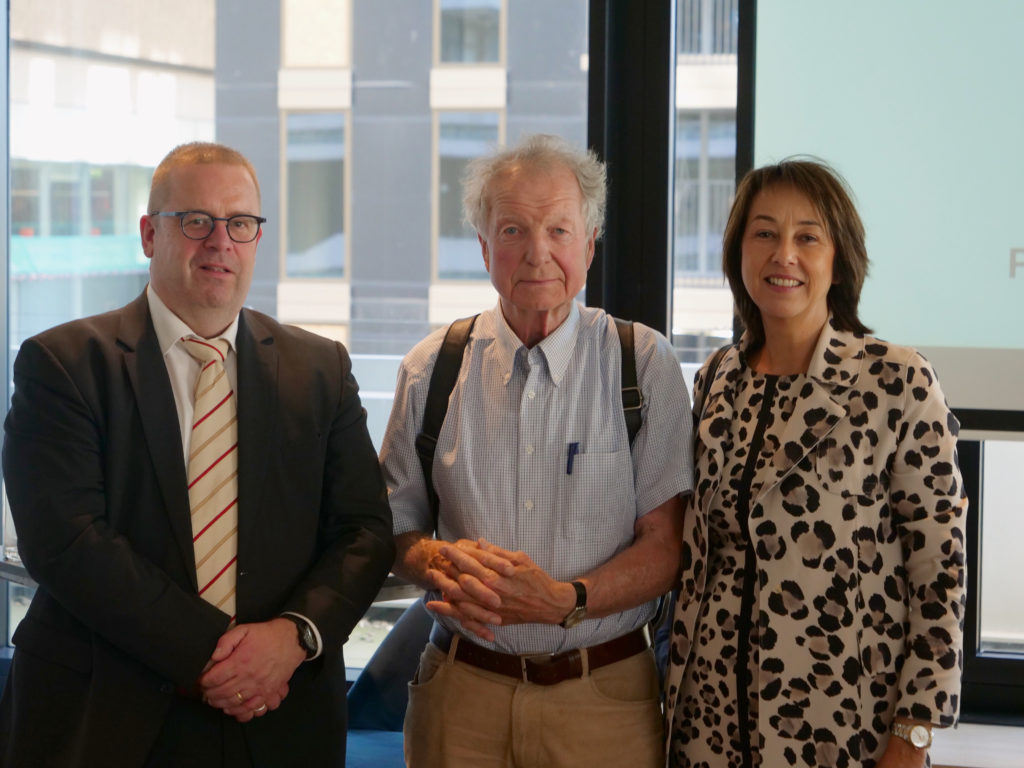
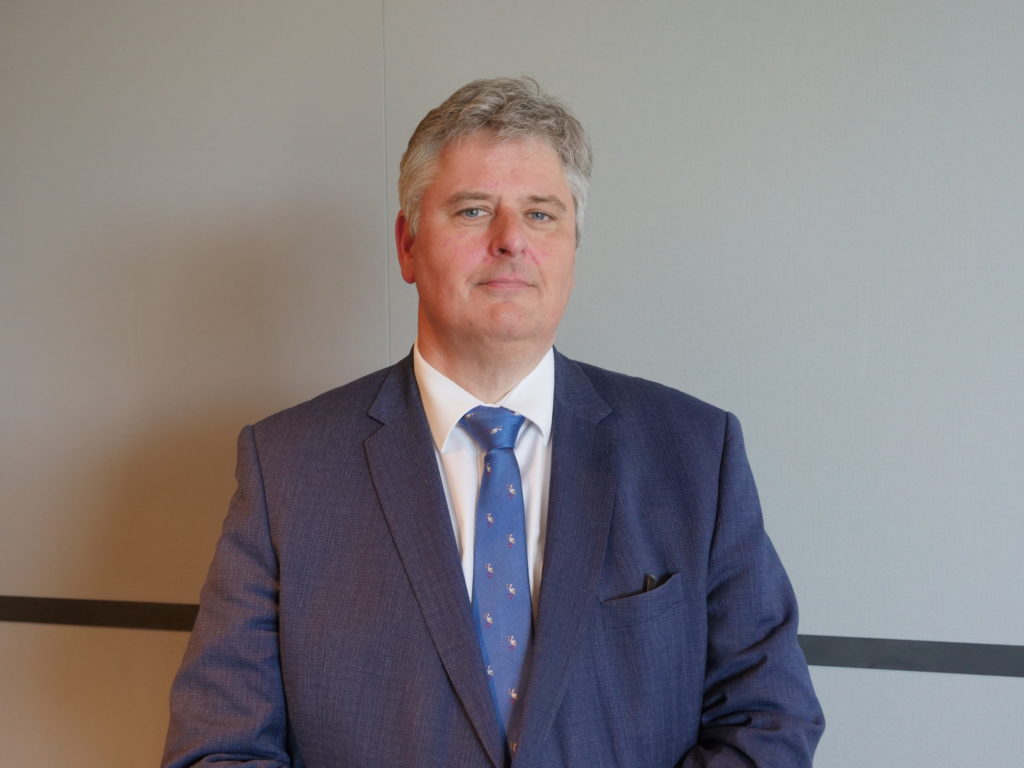
Gerard Tangenberg (Chair of the Supervisory Board)
In his keynote address, Prof. Adam Lazowski (University of Westminster, College of Europe), a renowned human rights lawyer and academic, revisited his 21-year collaboration with CILC, beginning with training judges in Estonia through the TMC Asser Institute. His speech focused on five principles for promoting the Rule of Law in the EU’s neighbourhood, organized around three essential tools:
He emphasized the challenges of legitimacy, especially as the EU promotes RoL abroad while grappling with internal challenges in some member states.
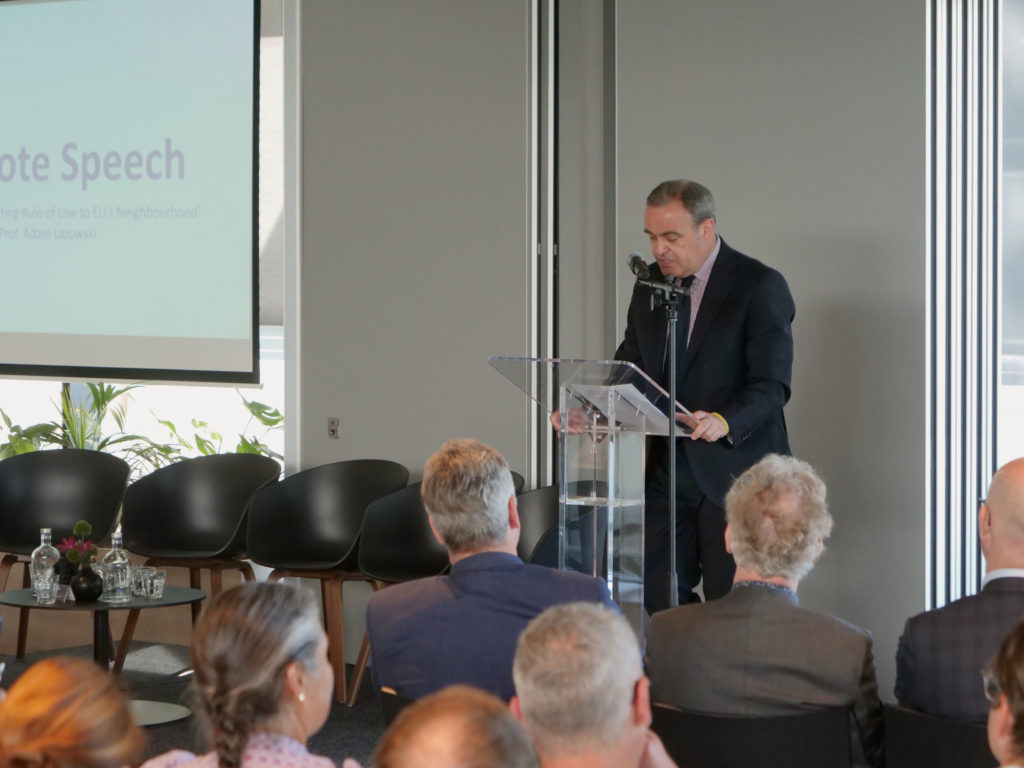
Panel Discussion: Reflecting on Impact and Looking Forward
The panel discussion, moderated by Wouter Kurpershoek, brought together distinguished experts with long-standing ties to CILC:
Margarita Potsiluyko highlighted how CILC’s support was instrumental in establishing Ukraine’s probation system, which wouldn’t have been included in legislation without international cooperation. Judge Lieneke de Klerk reflected on Ukraine’s judiciary communication reforms, noting the cultural challenge of shifting from rigid rules to more flexible, principle-based communication.
Simon Minks, a Dutch prosecutor active in the Balkans, pointed to CILC’s success in bringing key justice actors together in North Macedonia, a breakthrough he credited to their convening power. Judge Herman von Hebel recounted CILC’s quick intervention in Moldova after other donors, including USAID, withdrew from the judicial pre-vetting process. CILC’s commitment ensured that the commission continued to function.
Chief Prosecutor Altin Dumani, head of Albania’s SPAK, emphasized the institution’s growth was only possible through international support. He compared SPAK to a “baby” that needed nurturing and described CILC’s contribution as concrete and operational, especially in financial investigations.
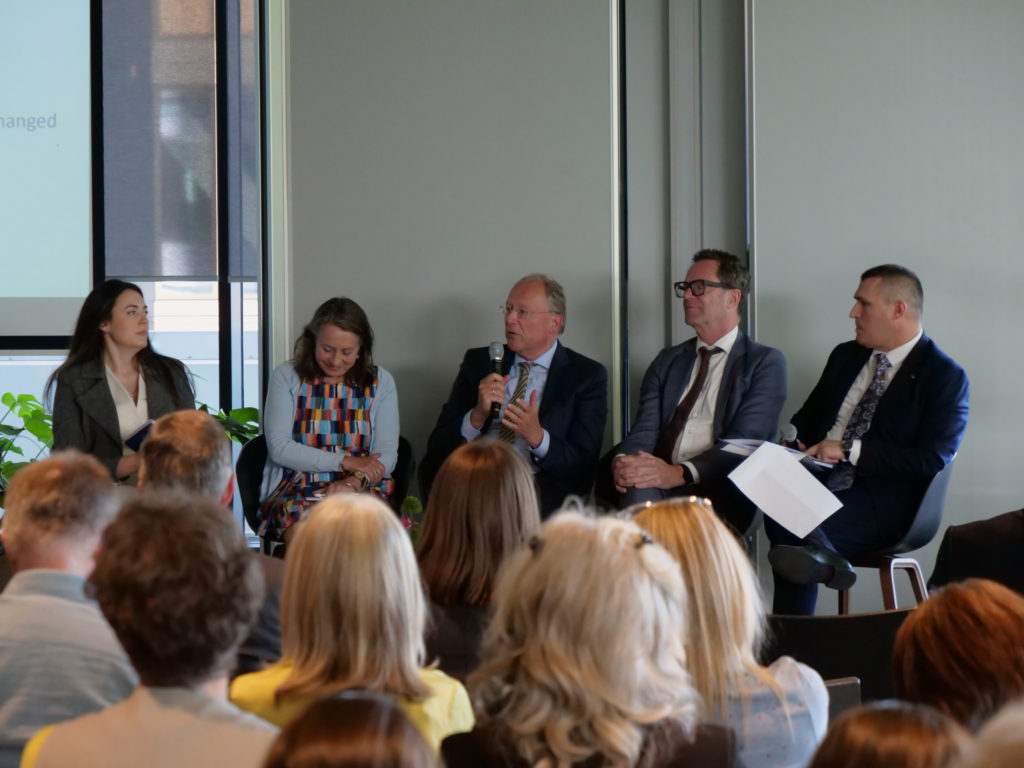
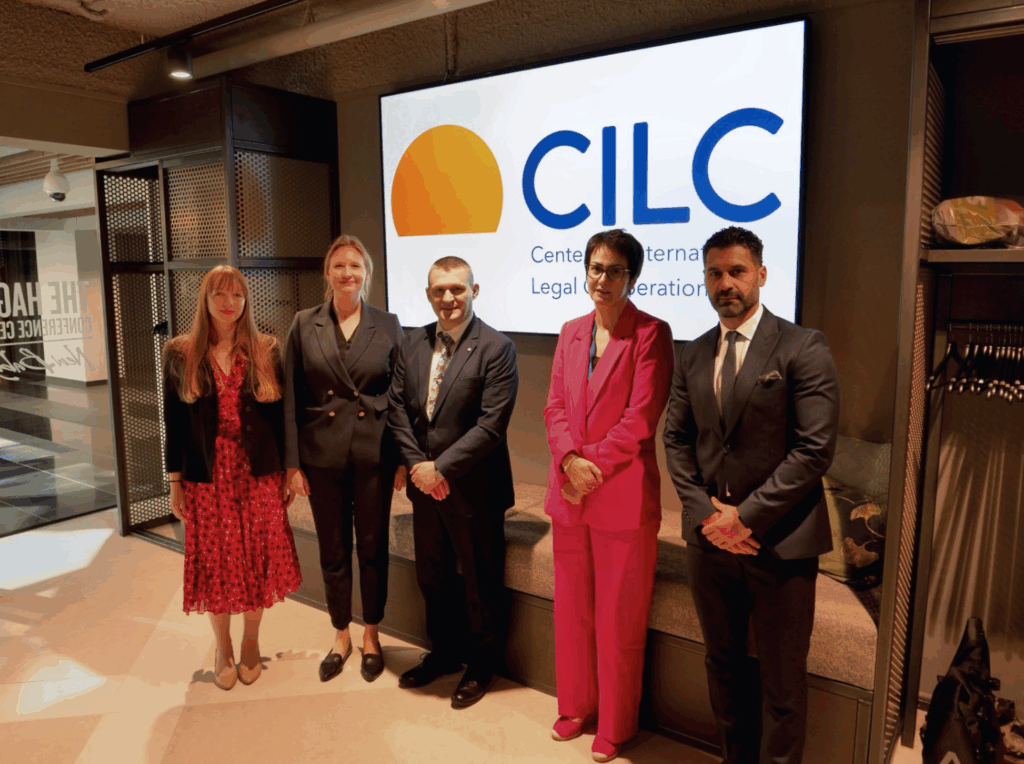
As part of the celebration, interviews with long-time institutional partners offered an additional layer of insight into CILC’s enduring impact and collaborative spirit.
William Tuls, Senior Policy Advisor at the International Affairs Department of the Netherlands Public Prosecution Service (Parket-Generaal), reflected on the long-standing relationship between CILC and OM. He emphasized the mutual benefit of their cooperation, which spans areas such as environmental crime, organised crime, and probation.
“It’s a two-way exchange,” he noted. “Our prosecutors and staff not only contribute expertise through CILC, but also gain valuable international experience that strengthens our work back home.”
For OM, partnering with CILC is more than supporting justice abroad, it is also an opportunity to develop international capabilities within their own ranks.
Teresa Thalhammer, Coordinator for EU Technical Assistance and Grants at IRZ, Germany’s legal cooperation agency, described CILC as a “natural partner.” With a similar size and mandate, IRZ and CILC have worked together for decades. Currently, CILC and IRZ are consortium partners in the flagship EU Police Assistance project in Bosnia and Herzegovina.
“We often find CILC’s name in our project files, it is a sign of trust,” she said. “Our organisations understand each other well, and our collaboration reflects shared values and mutual respect.”
Our ongoing partnership highlights how European cooperation in legal reform is not only strategic, but also deeply human, based on trust relationships built over time.
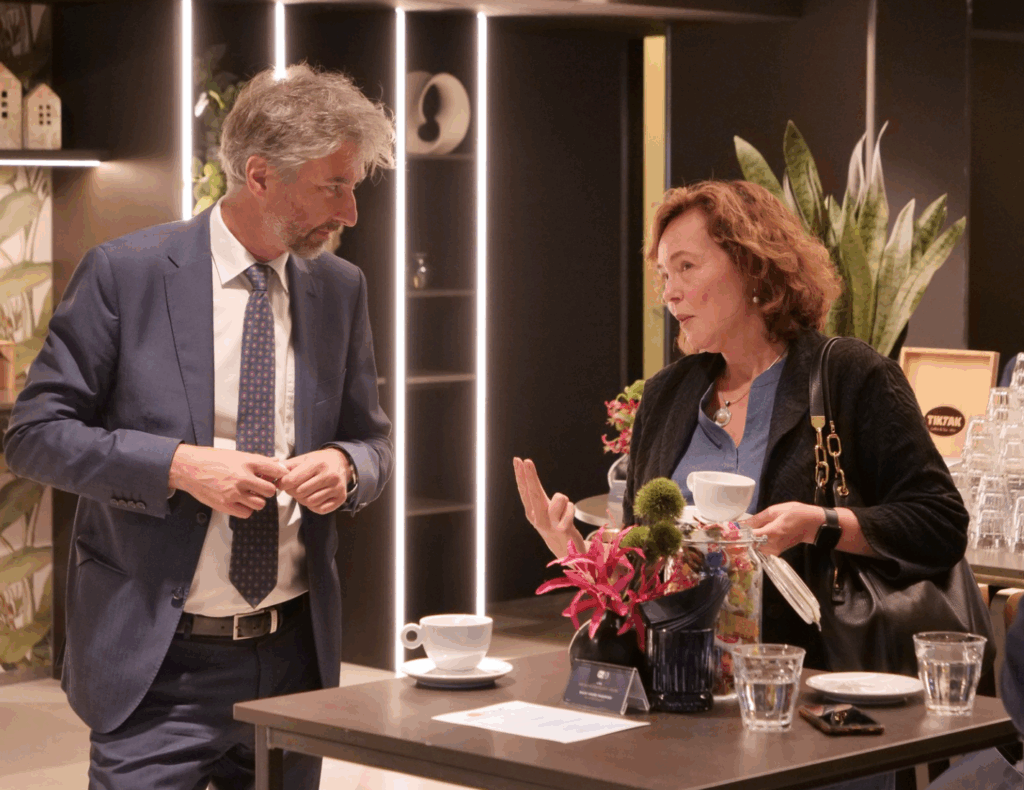
The 40th anniversary of CILC was more than a celebration – it was a reaffirmation of purpose. Through speeches, panel discussions, and personal reflections, one message came through clearly: meaningful legal reform takes time, trust, and partnership. From the early days of sharing Dutch legal expertise abroad to today’s complex challenges in Ukraine, Albania, and North Macedonia, CILC has remained committed to working with partners, not for them.
As the global landscape continues to evolve, so do the demands on justice systems. Whether it is strengthening judicial independence, building capacity for anti-corruption institutions, or fostering cross-border cooperation, CILC’s role remains vital. What distinguishes CILC is not just its expertise, but its long-term presence and its ability to adapt to local contexts while upholding universal legal principles.
Looking ahead, CILC will continue to support countries striving to build resilient, transparent, and fair legal systems, knowing that progress is rarely linear, but always possible when built on shared values.
Forty years on, CILC’s mission is as relevant as ever: to promote the rule of law, one partnership at a time. Thank you to everyone who has supported CILC throughout these four decades, from experts, colleagues, beneficiaries and other “friends”!